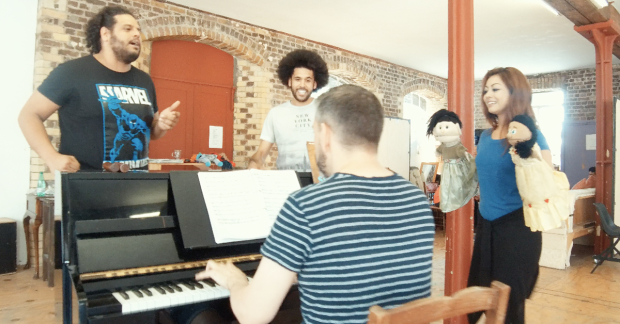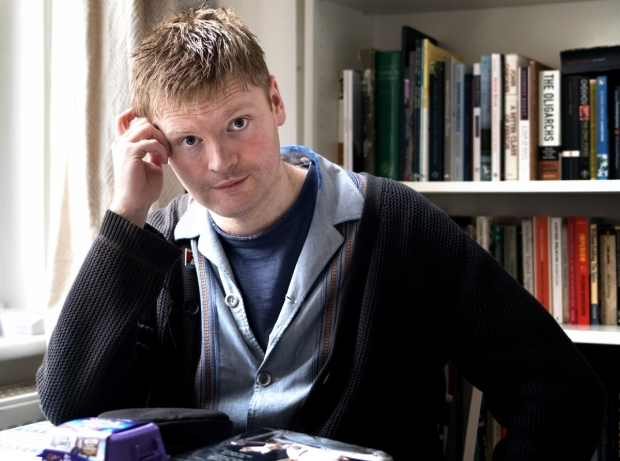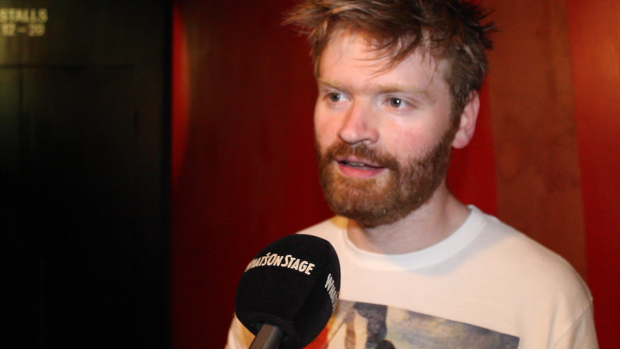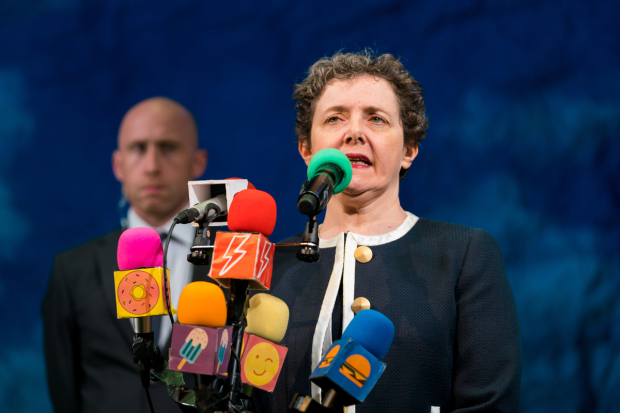Review: Pity (Royal Court)
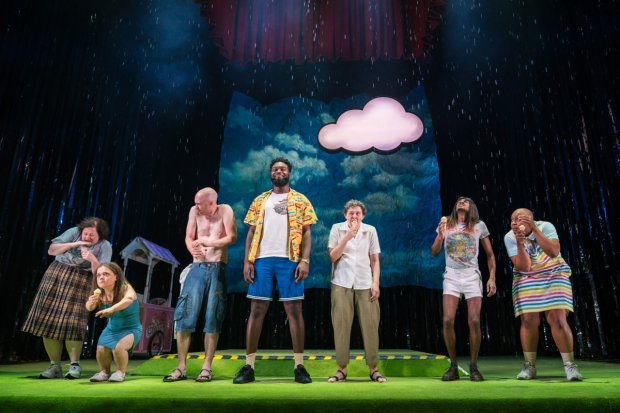
© Helen Murray 2018
"That escalated quickly." Didn't it just – or did it descend? Either way, Rory Mullarkey's catastrophic cartoon of a play goes from ice creams on a sunny day to atrocities in a fallen state in little over an hour. By the 100-minute mark, it's only gotten worse.
This is The Mighty Boosh meets Mother Courage – a broad comic gloss on the unfathomable devastation of societal collapse. Two young people, who only popped out for a cold snack and wound up getting married on the hoof, find themselves caught up in an unstoppable chain reaction of spiralling violence and social disarray. Pity shows how quickly events spin out of control, and how easily civilisation can cave in on itself.
Like Peter Handke's surrealist piece, In The Hour We Knew Nothing of Each Other, it's set in a small town square – specifically, that of a "completely typical and archetypal, prime example of a market town". Instead of watching the world go by however (there are marching bands, dog walkers and, er, psychotic warlords), it watches that world give way. A bomb blast at the local department store triggers a terror alert and widespread panic that leads, grimly and giddily, to civil war and far worse. Through it all, the two young lovers somehow survive: "I'm alright", they reassure each other, with a touching matter-of-factness. They keep calm and carry on.
Only it's played, in Sam Pritchard's careering production, with a comic strip sensibility: bloodshed in the style of The Beano. Chloe Lamford's sunny design, under a crumpled blue sky that quickly falls in, goes hell for leather: a gaudy green and pleasant land – "Bake Off!" Britain – unravels into a delirious vision of apocalypse. Toy tanks roll in. Rival armies ambush each other for 10 minutes straight. Charitable Hollywood actors are ripped to shreds.
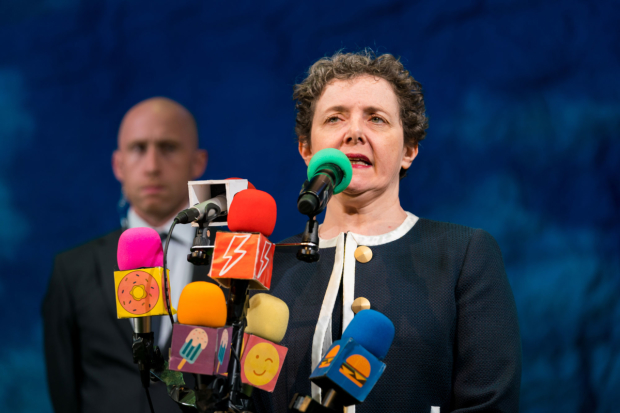
© Helen Murray 2018
As in Cannibals and The Wolf From the Door, Mullarkey's fascinated by the thin patina of civilisation – how readily polite society can go to dust – but, in the process, he challenges our stock sense of war-torn elsewheres.
Pity's specific point – and it feels grossly nihilistic – is that these things are random: life is a lottery, old chum. It starts with a thunderbolt that strikes down a bigot, but there's no justice or order to the horrors that follow. Disaster simply strikes – but then so does love, weather and inheritance windfalls. Pritchard's production kicks off with a tombola and stars a diverse cast of all shapes and sizes. You never know what you're going to get.
In that, Pity's a play motored by surprise: a pageant in which anything could happen next. Yet that randomness, inevitably, grows wearying – one thing, then the next – and Mullarkey's absurdist skits diminish in their returns. That's partly the point: how we quickly become immune to disarray. Yet as horrors mount, Pity follows a relentless logic as well: a race to the depths of despair. In all the irony, poetry and profundity drop out of the picture. There are flashes – three survivors swapping vocabulary as foreign bombs rain down their town – but mostly Pity's a cavalcade of cartoon violence.
Tonally, though, that sticks in the throat. There's something grossly distasteful about a show that gleefully takes the piss out of political turmoil and human suffering when such travesties are all-too-real. And yet, perhaps rampant scorn is the only reasonable response: Mullarkey's grim reaper humour cackles in the face of mankind's tendency to tear itself apart. It's not hugely insightful, but what insight's to be had. Horribly adolescent and wilfully immature, I loved it and loathed it in equal regards.



